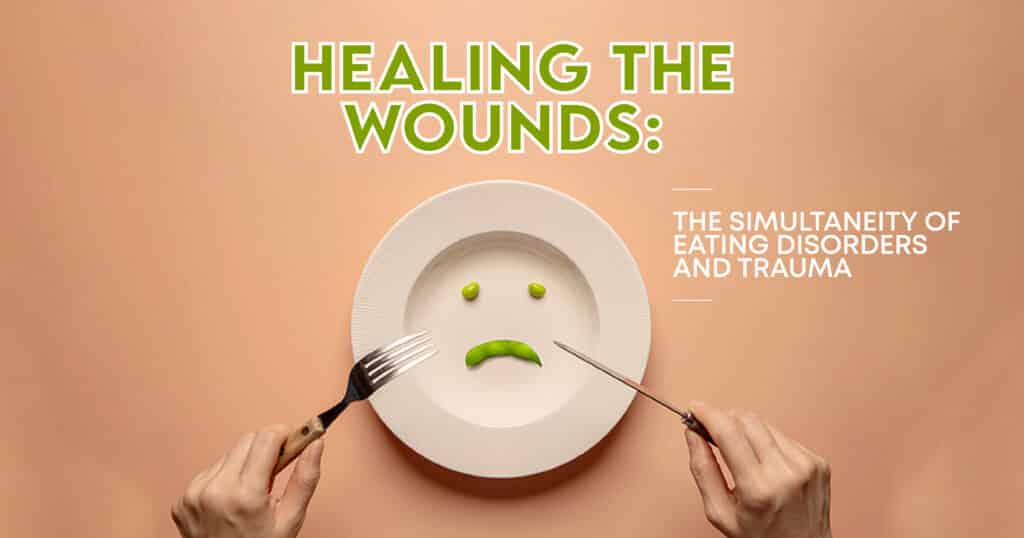When we think of eating disorders, we often consider them as standalone conditions, isolated from other psychological challenges. However, research and clinical observations have provided extensive evidence of a strong correlation between eating disorders and trauma. The link between these two realms runs deep, intertwining their effects on a person’s mental health and overall quality of life. In this article, we embark on a journey to understand the intricate relationship between eating disorders and trauma, shedding light on their coexistence and impact.
Trauma’s Role in the Development of Eating Disorders
Traumatic experiences can induce eating disorders, such as anorexia nervosa, bulimia nervosa, and binge eating disorders, as coping mechanisms for emotional distress. Trauma disrupts an individual’s sense of safety, causing them to seek control in other areas – often manifesting as disordered eating. The following factors contribute to the connection between trauma and eating disorders:
- Emotional Regulation: Trauma survivors may struggle with managing intense emotions, leading them to adopt self-destructive behaviors as a means to cope.
- Body Dissatisfaction: Trauma can distort body image perception, resulting in a negative relationship with food and the body, giving rise to disordered eating patterns.
- Control and Safety: Eating disorders can provide individuals with a faux sense of control and safety when grappling with the aftermath of trauma.
The Vicious Cycle: Trauma Reinforcing Eating Disorders
Eating disorders not only stem from trauma but can also reinforce and perpetuate the traumatic experience, creating a vicious cycle. The underlying mechanisms at play here include:
- Reenactment: Engaging in disordered eating behaviors can serve as a subconscious attempt to reenact and gain control over the traumatic event.
- Repression: Eating disorders can act as a coping mechanism, allowing individuals to avoid confronting and processing traumatic memories.
- Isolation: Eating disorders can intensify feelings of detachment and isolation, further hindering individuals from seeking support and healing from their trauma.
Frequently Asked Questions (FAQs)
1. Can trauma lead to all types of eating disorders?
While trauma has been linked to various eating disorders, its influence may vary depending on an individual’s unique circumstances and predispositions.
2. Are all eating disorders caused by trauma?
No, not all eating disorders stem directly from trauma. There are multifaceted factors that contribute to the development of these conditions, including genetic, societal, and psychological elements.
3. Can treating trauma help manage eating disorders?
Yes, addressing the underlying trauma is crucial in the recovery process of individuals with eating disorders. Trauma-focused therapies, such as cognitive-behavioral therapy (CBT), can be integral in supporting overall healing.
“Our daughter entered the facility for a 30 day residential treatment after being in an out of state RTC facility for 10 months. When we toured the facility, we met with one of the staff Beau and one therapist Tricia. We immediately realized they are there for the kids. They are a very positive reinforcement facility. They not only focus on therapy but also do a lot of outings so the girls aren’t overwhelmed. Outings include getting nails done, going to the lake, beach and horseback riding. Our daughter was very willing to go here.” – Richard Green
The Overlapping Journey of Healing and Recovery
In conclusion, the undeniable connection between eating disorders and trauma sheds light on the complexity of mental health challenges individuals face. Understanding the interplay between trauma and eating disorders is essential for both clinical professionals and society at large to fully comprehend the multifaceted nature of these conditions. Hillside Horizon’s healthcare and clinical professionals are well versed in treating adolescents who struggle with their mental health. Our team is passionate about working together to help families understand the process by pinpointing specific underlying reasons for their child’s struggles, then correctly diagnosing and treating such problems identified as trauma disorders.





